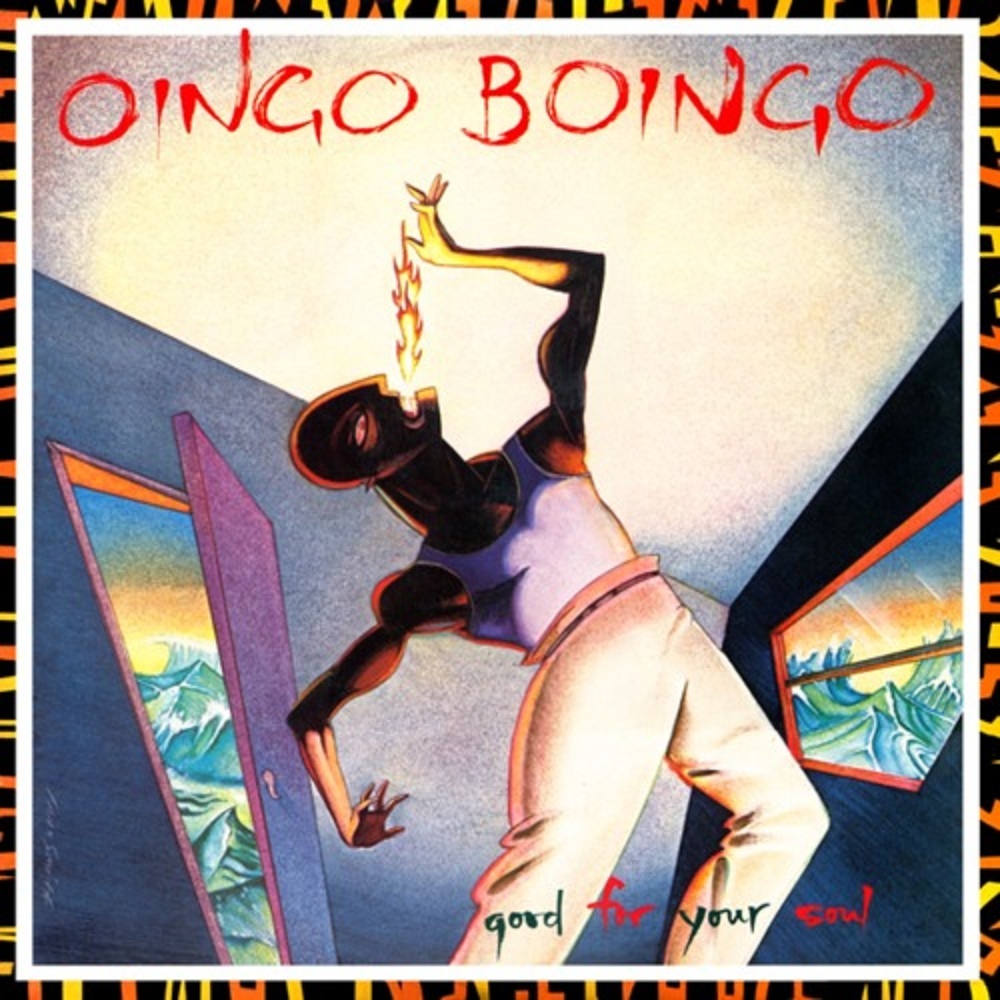
Well shit. Now I’ve gone and done it. I spent all that energy blowing my wad and singing my lofty dipshit praises about the previous album Nothing to Fear, positively ejaculating my jubilance all over your misshapen face about how there was not one bad song on that album, that it was perfect, and along comes Good for Your Soul, Oingo Boingo’s third album. Do I have the nerve, the gall, to proclaim, yet again, the same exact position? And this time there are eleven songs and there’s not a bad one among them? Can a band, especially one as gauche and “of its time” as garbage early-’80s Oingo-fucking-Boingo, really make 21 great songs in a row? More than that if you dip way back into Only a Lad‘s “Nasty Habits” and call it 22? Is this just some sort of teenage nostalgia-addled close-minded point of view of mine?
Most likely. I can tell you that I’ve known Good for Your Soul intimately for the last 13 years and I can still put it on to this day and enjoy the ever-loving crap out of it just as I could back when I was a piss-pants 16-year-old virgin extraordinaire. I don’t even get awkward and cringe-y about it like I would with, perhaps, “Weird Al” Yankovic’s debut (ACCORDIONS ARE VERY FUNNY, AL. GOOD WORK.) Nope, this is an excellent album. As far as I’m concerned, they’ve upped the ante even further this time around; not bad considering that they started recording tracks for Good for Your Soul immediately after finishing Nothing to Fear. I hate to compare the two, since both are standalone achievements in of themselves, but if I actually do have to compare the two, and I probably should since I already started this arduous sentence about 300 words ago, I can point to improvements in diversity of mood, maintenance of consistency, and overall maturity as evidence of growth of the band as a whole. Again, “overall growth” is a relative term because there was literally no time off between recording the two albums, so take it for what it’s worth. If I told you they were recorded three years apart from one another you’d probably believe me, not that there’s a lot at stake here anyway. It’s Oingo Boingo, not the Renaissance. And it’s not ’70s prog outfit Renaissance either, but they’re pretty good too. Sorry, I had a stroke again. I’d also say that Good for Your Soul is a bit more mellow overall than past efforts, which makes sense because every Oingo Boingo studio album is more mellow than the previous one (until Boingo, their final album), so fuck it. What a pointless paragraph this has been.
It wouldn’t be fair to make the claim that, once again, every song is good and not give Good for Your Soul the same treatment I gave its predecessor with the track-by-track blow-by-blow and whatnot. At the very least it pads out the review nicely! And don’t worry, there aren’t anymore Very Good albums left in the Oingo Boingo machine for the remainder of their career (spoiler alert!) so I won’t have to do it again anyway. Or maybe I’ll dust off this format once I hit their one Kinda Bad album. Oh man, how suspenseful! You can always count on me to keep you indubitably reeling at the edge of your goddamn seat. Anyway, onward with the Good for Your Soul in-depth analysis!:
- “Who Do You Want To Be?” kicks your ass right off the bat with a bombastic introduction, vaguely industrial and punchy as fuck. These cats mean business, and they’re not afraid to ejaculate their pseudo-jubilance all over your pockmarked face about it. Energy starts out high high high high high high and it doesn’t let up the entire time. The lyrical matter is old hat by today’s standards, what with the social commentary about television rotting the brains of the youth and controlling their minds (“Who do you want to be today?/Do you want to be just like someone on TV?“). Yawn. Thanks for the input, Grandpa. I’m pretty sure next you’re going to tell me that rock and roll music is for degenerates and frightening individuals of the non-white persuasion? Anyway, fantastic song! One of my very favorites from OB.
- “Good for Your Soul” slows things down a bit (relatively speaking, it’s still fairly energetic) with a synthy, moody, yet jaunty, and sorta Depeche Mode-y tune about, yet again, panicked self-doubt and obsession akin to Nothing to Fear‘s “Private Life”. Whether or not the lyrics are actually profound, the melody is so strong that you at least believe it’s profound. It’s one false step before plunging into the vast, murky waters of ’80s cheese for sure, but you won’t feel guilty for enjoying it. I sure don’t.
- “No Spill Blood” is a direct, metaphor-free song about H.G. Wells’ “The Island of Dr. Moreau” and anyone who probes for further meaning is full of beans! Classic Oingo Boingo horn arrangements serve as punctuation marks between verses and musical phrases while Elfman yelps out animal calls. An atmosphere of synthy moodiness washes over the bridge. Sounds positively seductive, no?
- “Cry of the Vatos” is a short instrumental “throwaway”, which is a rude word and I don’t really mean it. A stylistically logical continuation of the previous track, animal noises and brassy horns aplenty, this catchy, danceable beat-driven interlude is apparently supposed to be a satire of world music. You don’t need to know that to enjoy it though! It’s all a bunch of gruntin’, hootin’ and hollerin’! What’s not to love on its own merits?
- “Fill the Void” brings it back down to mid-tempo with a moody and funky reggae synthpop extravaganza. Think of it as the The Police meets Wall of Voodoo, a marriage of two new wave bands that no one asked for! But hey, like I said, every song is good, so allow me to TAKE THE PISS out of it and BREAK BALLS over ‘ere. The song chugs along on the same groove without any major departures aside from the chorus (“What do they want from meeeeeeeeee?/What do they want from meeeeeeeee?“), but it’s a catchy groove, and it’s not irritating, and there are plenty of flourishes of brass instrumentation to keep the loyal Oingo Boingo aficionado satisfied. Much like “Good for Your Soul”, the feeling of profoundness adds weight to the words as Elfman sings soulfully, at least as soulfully as a ginger white boy can in his ’80s new wave band.
- “Sweat” brings the energy back up again! This album bobbles between moods like a fine-tuned Duncan Imperial yo-yo. Or if you will, a Yomega Fireball? Hey, I could talk about yo-yos all day, but I’m here to talk about “Sweat”! Man, the desperation in Elfman’s singing is absolutely tangible as he describes situations that would cause one to sweat: getting sent to principal’s office, running for cover during battle, implied sexual intercourse, et al. Kinda brings to mind Nothing to Fear‘s “Wild Sex (in the Working Class)” with its sultry saxophone passages and images of sweaty fuckin’. Listen to this song on a loop, it’ll put hair on your chest. That goes for the ladies, too.
- “Nothing Bad Ever Happens” brings it back down to a very deliberate, moderate, emotionless tempo. Intricate synth notes, robotic and tense, weave the framework of the whole song. The lyrics are dead straightforward for sure now, with each verse telling the story of misfortune occurring to those directly around him: a family in the neighborhood tied up and beaten while a burglar ransacked their house, a friend let go from his job with no pension after 20 years, a neighboring family whose son committed suicide. Each verse ends with Elfman bluntly stating “And I can’t believe that anyone would wanna do such a terrible thing/But why should I care?“. Oh man, what an arrogant prick! And that’s his stance throughout, just one of completely ambivalence; there’s no learning, no self-awareness, no empathy, no remorse. These days I like to think that Elfman represents white America, but then it becomes WAY more sad and true.
- “Wake Up (It’s 1984)” has a melody swathed in gloomy, synthy goodness, though even with the Orwell reference it feels dreadfully dated. You can totally tell that there was an air of excitement surrounding the development of this song. Like, “Oh my God, we can’t miss this opportunity!”. It could be worse, though, like fucking Will Smith and his fucking “Will 2k” piece of shit. This song implies that, yeah, it’s 1984 and the government can’t be trusted, but it’s always been that way anyway and it always will be. Timeless! See, I redeemed it.
- “Dead or Alive” is about zombies, man. Oddly enough, the song about zombies, of all things, doesn’t seem to elicit the same panicked, anxious reactions from Elfman that psychological topics such as isolation do. In fact, the way he delivers the lines “I remember there was a time/When dead and buried meant just that/Underneath the cold dark ground things stay PUT!” makes it sound like the zombies are an annoyance, an inconvenience hampering his day. Ho hum.
- “Pictures of You” is like The Cure if The Cure was cognizant of its own Cure-ness (which it is, actually, so never mind). Don’t worry, though, once you hear the first instance of “It’s just pictures of you/In daaaaaarkneeesssss” you can FINALLY eschew from believing the alleged profoundness you’ve been tricked into thus far throughout the record. This song is silly, just like The Cure. While it’s a still a very fine song, this one bottoms my list. I love The Cure, but Oingo Boingo sucks at being The Cure.
- “Little Guns” ends the album on an upbeat, maniacal circus vibe that we all know and love and miss from Only a Lad. The dude is singing about toy soldiers or something. Is this political commentary or good ol’ fashioned vaudeville fun? And forget what I said about the sultriness of the saxophone passages in “Sweat”, this song has a saxophone solo that is so unrelentingly sexy that your penis and balls will melt right off your body (and once again, that goes for the ladies too).
Once upon a time Good for Your Soul was hard to find on CD. I remember trying to collect the discography in the early ’00s and this was the only album that was unavailable in stores and online. Only from third-party sellers could I get a copy, and they were asking for $50 or more. These days I’m pretty sure it’s readily available for a reasonable price, so there’s no excuse anymore for not having access to the best album Oingo Boingo would ever release.

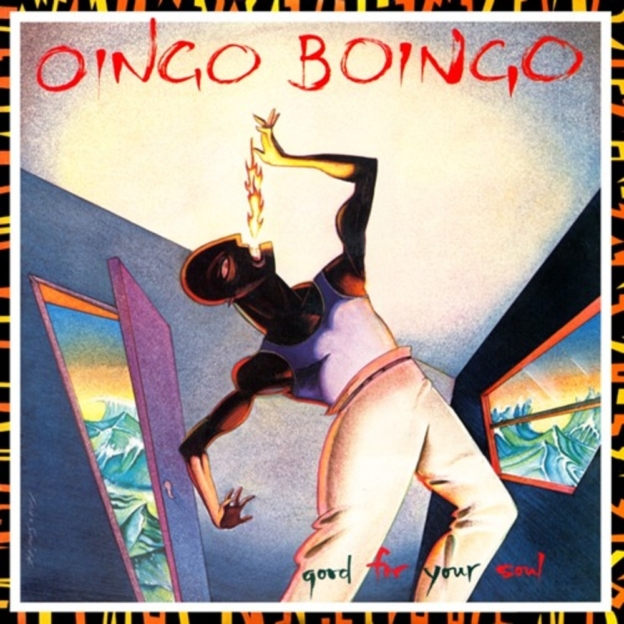
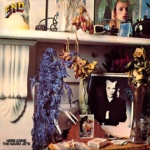



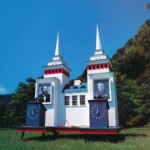
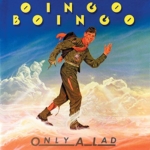
Click here to ridicule this post!